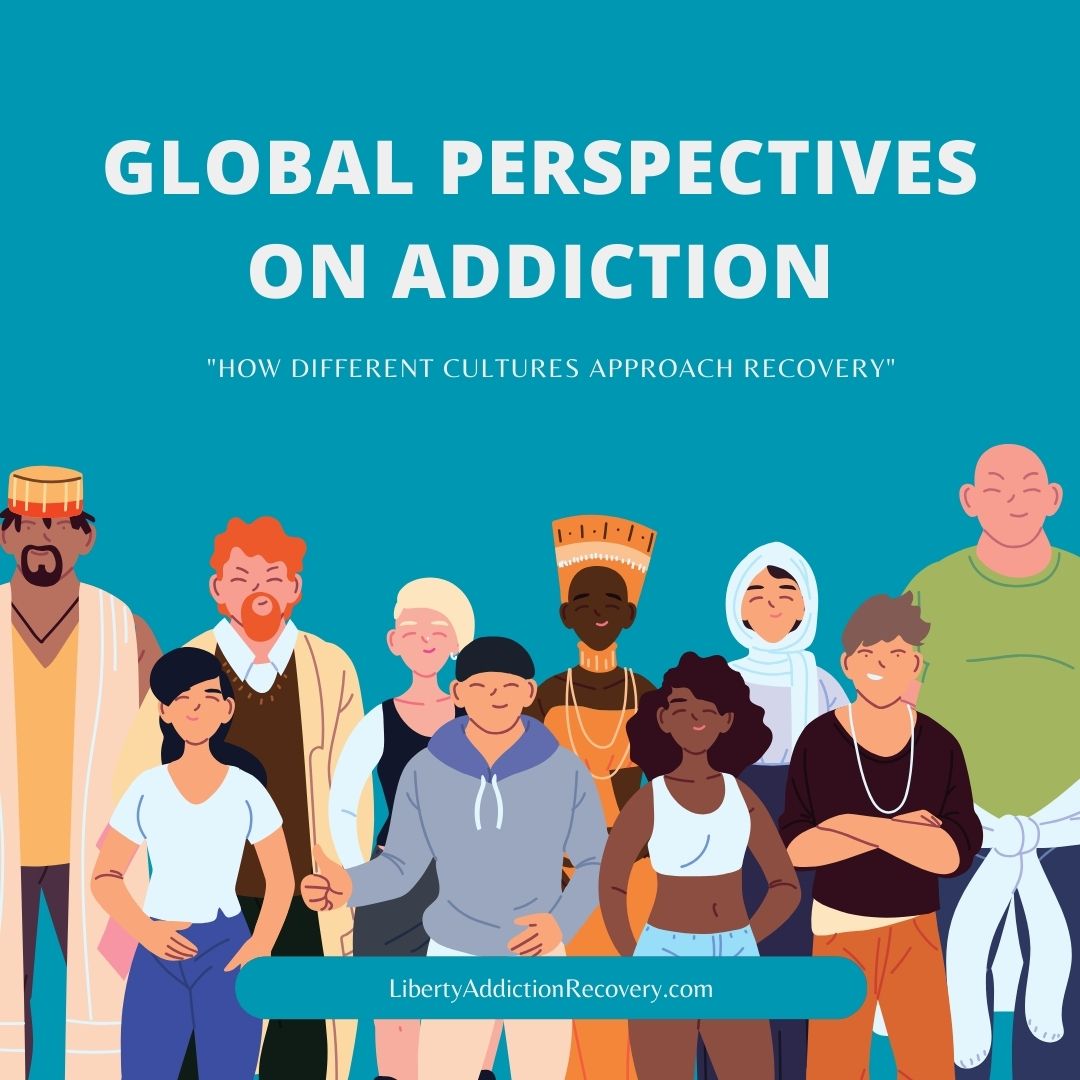How Different Cultures Approach Recovery
The Global Challenge of Addiction
Addiction affects millions worldwide, transcending borders and cultures. It’s a universal struggle, yet the paths to recovery vary dramatically globally. Different cultures bring unique perspectives and practices to addiction recovery, influenced by societal norms, values, and healthcare systems.

Western Approaches: Medicalization and Individual Therapy
Evidence-Based Treatments
In Western cultures, addiction is often seen through a medical lens. Treatments focus on scientific methods like medical detoxification and medication-assisted treatment (MAT). MAT uses medications such as methadone and naltrexone to ease withdrawal symptoms and cravings. Cognitive-behavioral therapy (CBT) and motivational interviewing (MI) are pivotal in reshaping thought patterns related to substance use.
Support Groups
Support groups like Alcoholics Anonymous (AA) and Narcotics Anonymous (NA) are integral. They provide peer support, offering a space where individuals can share experiences and support each other in structured recovery .

Eastern Perspectives: Holistic and Community-Based Approaches
Traditional Chinese Medicine (TCM)
Eastern cultures often emphasize holistic healing. Traditional Chinese Medicine (TCM) uses acupuncture, herbal remedies, and practices like Tai Chi to restore balance. These methods are sometimes combined with Western practices, creating a comprehensive treatment plan.
Japan’s Cultural Emphasis
In Japan, addiction recovery involves the community and family, reflecting societal values of harmony and cohesion. Group therapy and community support are prioritized over medication, fostering a supportive environment for recovery.
Scandinavian Models: Social Welfare and Harm Reduction
Comprehensive Healthcare
Scandinavian countries like Denmark focus on harm reduction and social support. They provide free or low-cost addiction services, ensuring that healthcare is accessible to all . Needle exchange programs and supervised injection sites are common, aiming to reduce the health risks associated with drug use.
Heroin-Assisted Treatment (HAT) in Denmark
Denmark’s Heroin-Assisted Treatment (HAT) program provides medical-grade heroin under supervision. This innovative approach has shown to reduce crime and improve health outcomes
African Perspectives: Community Support and Traditional Healing
Integrating Traditional and Modern Practices
In Africa, traditional healers often work alongside medical professionals, offering a blend of modern and traditional care . Community support plays a vital role, with families actively involved in the recovery process.
Community Involvement
Family and community support are crucial. Programs emphasize the role of these networks in fostering a supportive environment for recovery .
Indigenous Cultures: Spiritual and Nature-Based Approaches
Spiritual Practices
For many Indigenous cultures, recovery involves reconnecting with spiritual roots. Native American tribes, for example, incorporate spiritual rituals and nature-based practices to restore balance and purpose .
The Importance of Cultural Sensitivity in Addiction Treatment
Culturally Responsive Care
Culturally sensitive treatment involves integrating cultural practices into recovery plans. This approach fosters a sense of belonging and identity, enhancing the effectiveness of treatment.
Benefits of Cultural Practices
Incorporating cultural practices can boost self-awareness and mindfulness, essential for a holistic recovery.

How Liberty Addiction Recovery Can Help
Tailored Treatment Plans
At Liberty Addiction Recovery Centers, we offer personalized and comprehensive care. Our treatment plans are tailored to each individual’s needs, ensuring effective and meaningful recovery.
Cultural Sensitivity at Liberty
We integrate cultural practices into our treatment, respecting the diverse backgrounds of our clients.
Evidence-Based and Holistic Approaches
Our center combines evidence-based therapies with holistic practices, providing a well-rounded recovery experience.
Conclusion – Global Perspectives on Addiction
Embracing Global Perspectives
Understanding different cultural approaches to addiction recovery enriches our global efforts. Each perspective offers valuable insights into the diverse paths to healing.
Reach Out to Us
If you’re seeking culturally sensitive and comprehensive care, contact Liberty Addiction Recovery Centers for guidance and support on your journey to recovery.
FAQs – Global perspectives on addiction
- What are some common Western approaches to addiction recovery?
- Western approaches often involve medicalization and individual therapy. Treatments such as medical detoxification, medication-assisted treatment (MAT), cognitive-behavioral therapy (CBT), and support groups like Alcoholics Anonymous (AA) and Narcotics Anonymous (NA) are common.
- How do Eastern cultures typically approach addiction recovery?
- Eastern cultures often emphasize holistic healing and community support. Traditional Chinese Medicine (TCM), including acupuncture and herbal remedies, alongside community-focused therapy, plays a significant role. Japan, for example, prioritizes group therapy and family involvement over medication.
- What is Harm Reduction, and how is it applied in Scandinavian countries?
- Harm Reduction involves strategies aimed at minimizing the negative health impacts of drug use. Scandinavian countries like Denmark provide comprehensive healthcare, including free or low-cost addiction services, needle exchange programs, and supervised injection sites. Denmark also employs Heroin-Assisted Treatment (HAT) for more severe cases.
- How are addiction recovery practices integrated with cultural traditions in Africa?
- In Africa, addiction recovery often involves a blend of modern and traditional healing practices. Traditional healers work alongside medical professionals, emphasizing community support and involving families in the recovery process to create a supportive environment.
- What role do spiritual practices play in addiction recovery for Indigenous cultures?
- For Indigenous cultures, addiction recovery frequently involves reconnecting with spiritual roots and cultural practices. Native American tribes, for instance, incorporate spiritual rituals and nature-based practices to restore balance, mental wellness, and a sense of purpose.






